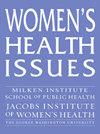Dobbs诉Jackson妇女健康组织对1年后妇产科培训的影响:医师观点的定性分析。
IF 2.5
2区 医学
Q2 PUBLIC, ENVIRONMENTAL & OCCUPATIONAL HEALTH
引用次数: 0
摘要
背景:2022年6月24日,美国最高法院对“多布斯诉杰克逊妇女健康组织案”的判决结束了宪法对堕胎的保护,严重限制了获得生殖保健的机会,并引发了对妇产科学员影响的担忧。目的:本定性研究考察多布斯决策对一年后妇产科培训和实践的影响。方法:邀请参与患者护理和医学教育的妇产科医师参与在线焦点小组。我们试图从美国不同的亚专业和地区招募参与者。18名医生参加了2023年7月至10月进行的五次会议。两位独立研究人员使用迭代过程对文本进行编码,以确定主题和副主题。另一位审稿人解决了差异。结果:确定了八个主题:限制与保护状态下的护理二分法,医患关系的丧失,医生的道德困扰,医生的法律问题,培训计划的新问题,学员失去患者护理经验,患者失去获得护理的机会,以及对政策制定者的失望和沮丧。主题被分为对病人、受训者、医生和整个社会的影响,反映了病人护理、培训和医生士气的负面变化。结论:本定性研究发现,医生认为Dobbs裁决对患者、受训者和医生都有负面影响。与会者注意到,这些变化导致护理的两分法,即处于限制性和保护性状态的患者得到不同的护理,有些患者可能得不到医疗上必要的治疗。本文章由计算机程序翻译,如有差异,请以英文原文为准。
Impact of Dobbs v. Jackson Women's Health Organization on Obstetrics and Gynecology Training One Year Later: Qualitative Analysis of Physician Perspectives
Background
On June 24, 2022, the Supreme Court of the United States' Dobbs v. Jackson Women's Health Organization decision ended constitutional protection for abortion, resulting in severely restricted access to reproductive health care and raising concerns about the repercussions on obstetrics and gynecology trainees.
Objective
This qualitative study examines the observed effects of the Dobbs decision on obstetrics and gynecology training and practice one year out.
Methods
Obstetrics and gynecology physicians involved in patient care and medical education were invited to participate in online focus groups. We attempted to recruit participants from a diversity of subspecialties and regions of the United States. Eighteen physicians participated in five sessions conducted July–October 2023. Using an iterative process, two independent researchers coded transcripts to identify themes and subthemes. An additional reviewer resolved discrepancies.
Results
Eight themes were identified: dichotomy of care in restrictive versus protective states, loss of the patient-physician relationship, moral distress to physicians, legal concerns for physicians, new issues for training programs, loss of patient care experiences for trainees, loss of access to care for patients, and disappointment and frustration with policy makers. Themes were grouped into their effects on patients, trainees, physicians, and society overall, reflecting negative changes in patient care, training, and physician morale.
Conclusions
This qualitative study found that physicians see the Dobbs ruling as having negative effects on patients, trainees, and physicians. Participants observed that these changes are leading to a dichotomy of care in which patients in restrictive and protective states receive different care and some patients may not receive medically necessary treatment.
求助全文
通过发布文献求助,成功后即可免费获取论文全文。
去求助
来源期刊

Womens Health Issues
Multiple-
CiteScore
4.50
自引率
6.20%
发文量
97
审稿时长
32 days
期刊介绍:
Women"s Health Issues (WHI) is a peer-reviewed, bimonthly, multidisciplinary journal that publishes research and review manuscripts related to women"s health care and policy. As the official journal of the Jacobs Institute of Women"s Health, it is dedicated to improving the health and health care of all women throughout the lifespan and in diverse communities. The journal seeks to inform health services researchers, health care and public health professionals, social scientists, policymakers, and others concerned with women"s health.
 求助内容:
求助内容: 应助结果提醒方式:
应助结果提醒方式:


